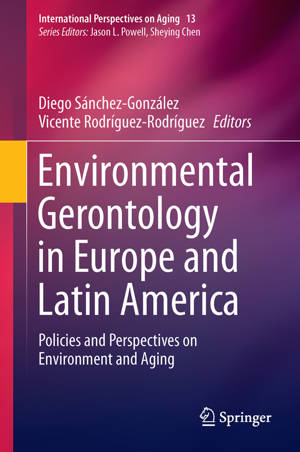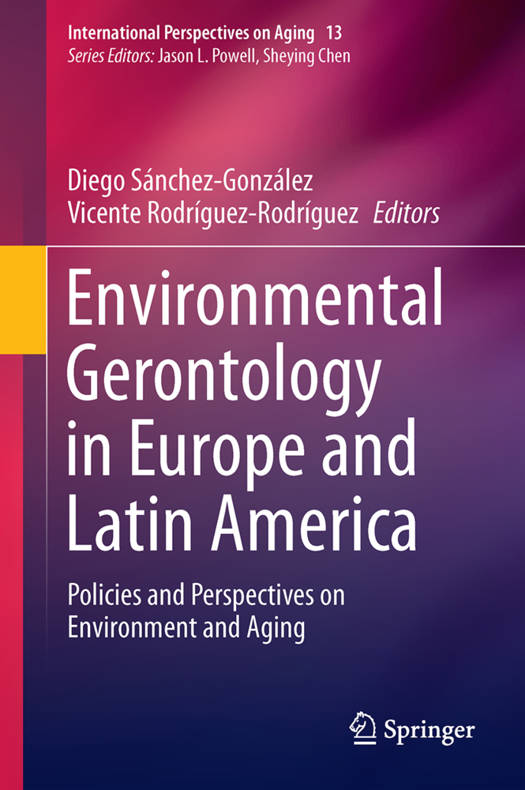
Bedankt voor het vertrouwen het afgelopen jaar! Om jou te bedanken bieden we GRATIS verzending (in België) aan op alles gedurende de hele maand januari.
- Afhalen na 1 uur in een winkel met voorraad
- In januari gratis thuislevering in België
- Ruim aanbod met 7 miljoen producten
Bedankt voor het vertrouwen het afgelopen jaar! Om jou te bedanken bieden we GRATIS verzending (in België) aan op alles gedurende de hele maand januari.
- Afhalen na 1 uur in een winkel met voorraad
- In januari gratis thuislevering in België
- Ruim aanbod met 7 miljoen producten
Zoeken
Environmental Gerontology in Europe and Latin America
Policies and Perspectives on Environment and Aging
€ 153,95
+ 307 punten
Omschrijving
This book looks at the relationships between the physical-social environment and the elderly in Europe and Latin America, from the Environmental Gerontology perspective and through geographical and psychosocial approaches. It addresses the main environmental issues of population ageing, based on an understanding of the complex relationships, adjustments and adaptations between different environments (home, residence, public spaces, landscapes, neighbourhoods, urban and rural environment) and the quality of life of the ageing population, associated with residential strategies and other aspects related to health and dependency. The different levels of socio-spatial analysis are also explored: macro (urban and rural environments, regions and landscapes), meso (neighbourhood, public space) and micro (personal, home and institution). New theoretical and methodological approaches are proposed to analyse the attributes and functions of the physical-social environment of the elderly, as well as new ways of living the ageing process. All will have to respond to the challenges of urbanisation, globalisation and climate change in the 21st century. Also, the different experiences and challenges of public planning and management professionals involved with the growing ageing population are presented, and will require greater association and collaboration with the academic and scientific fields of Environmental Gerontology.
Specificaties
Betrokkenen
- Uitgeverij:
Inhoud
- Aantal bladzijden:
- 306
- Taal:
- Engels
- Reeks:
- Reeksnummer:
- nr. 13
Eigenschappen
- Productcode (EAN):
- 9783319214184
- Verschijningsdatum:
- 13/11/2015
- Uitvoering:
- Hardcover
- Formaat:
- Genaaid
- Afmetingen:
- 156 mm x 234 mm
- Gewicht:
- 639 g

Alleen bij Standaard Boekhandel
+ 307 punten op je klantenkaart van Standaard Boekhandel
Beoordelingen
We publiceren alleen reviews die voldoen aan de voorwaarden voor reviews. Bekijk onze voorwaarden voor reviews.








